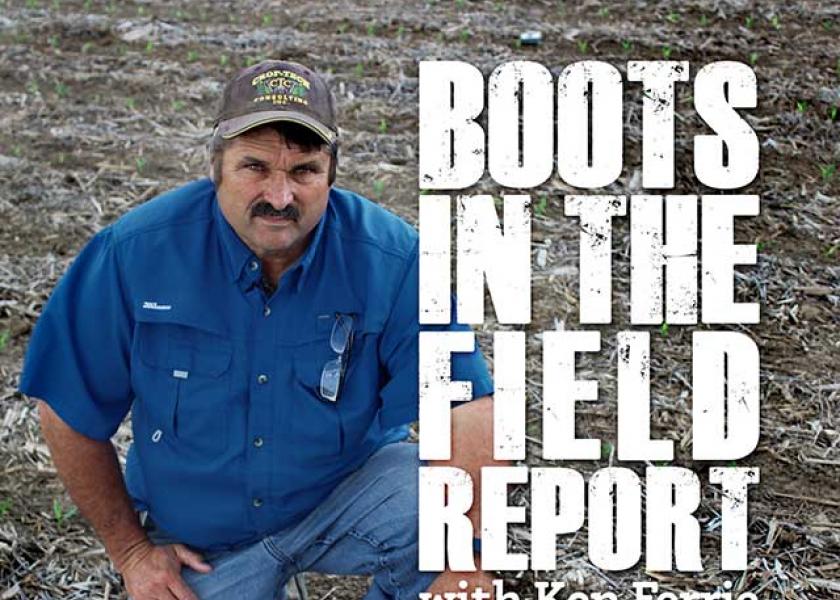Ferrie: Fall Burndown Applications Will Still Work. Here’s How.

It looks and feels like winter in much of the country, but it’s not too late to benefit from a fall burndown for weed control in fields, according to Ken Ferrie, Farm Journal Field Agronomist and owner of Crop-Tech, Inc., Heyworth, Ill.
“We’ve seen good results through even late February,” says Ferrie, in his latest Boots In The Field podcast. “Weeds like henbit and marestail have a wide window for control.
“Look for windows when you can spray with temperatures that are above freezing,” he adds.
A fall burndown treatment is often effective on existing infestations of winter annuals, volunteer wheat, biennials (wild carrot, poison hemlock), or cool-season perennials (dandelion, quackgrass, Canada thistle) that are most susceptible to herbicides in the fall, according to research at Ohio State University (OSU).
“The rate of plant death can slow considerably, but this is not a problem since weeds just have to die by early spring,” writes Harold Watters, OSU field specialist, in a 2018 article on the topic of fall burndown. Watters’ story is available here: https://bit.ly/35TFGXu
However, summer annuals—like waterhemp and common lambsquarters, for instance—can’t be controlled at this point with a fall burndown treatment.
“These plants are already dead due to freezing temperatures, and a fall burndown also won’t stop their seeds from germinating next summer versus a soil-applied, residual chemistry that you can use next summer preemergence,” Ferrie says.
He notes that no-till fields going into non-GMO soybeans are good candidates for a fall burndown.
“Have that field clean coming into April, so you can strike at any time and plant when the conditions warrant,” he says.
Ferrie adds that for farmers using tillage, consider looking for an opportunity to level fields between now and the end of February, if conditions permit.
“Some growers missed the tight planting window last April because the fields weren’t level enough to plant,” he notes.
He encourages growers to work with their planting crew, retailer and seed supplier now to plan how to address field work and planting, especially soybeans, in a timely fashion next spring.
“Seed selection alone can impact how your herbicide program can or needs to be laid out for next spring,” he notes.
Ferrie adds that when ordering soybeans you plan to plant early, protect your crop against sudden death syndrome (SDD) with seed treatments. The issue, coupled with what’s likely to be cold, wet weather next April, is too big a risk to ignore if planting early. Plus, the upside is you’re likely to see a yield bump in those April-planted beans.
“Just two or three days of April-planted soybeans can raise the overall farm average by the end of the season,” Ferrie says.
You can hear Ferrie’s complete Boots In The Field podcast here:







